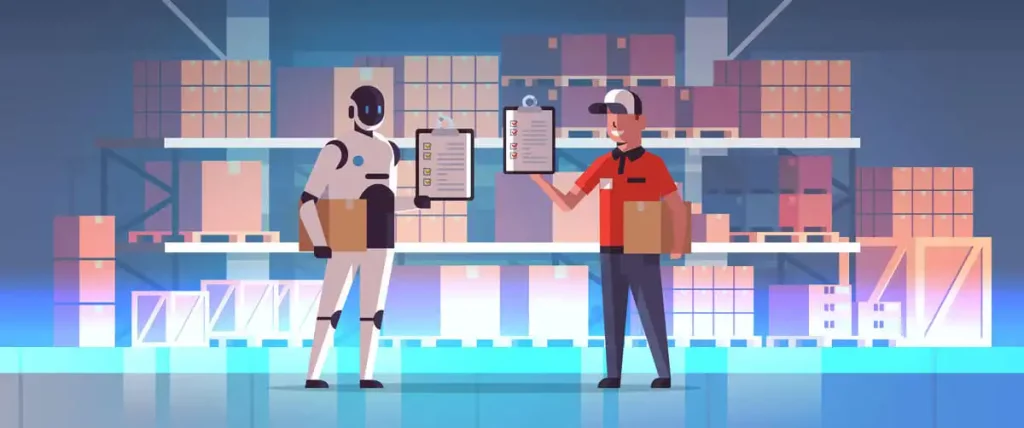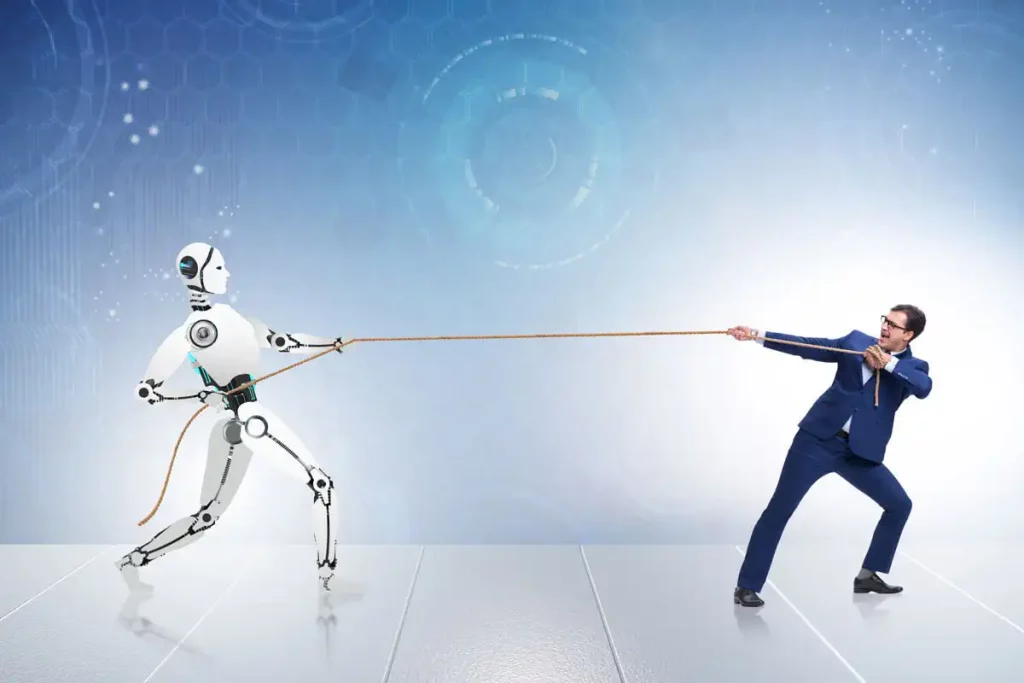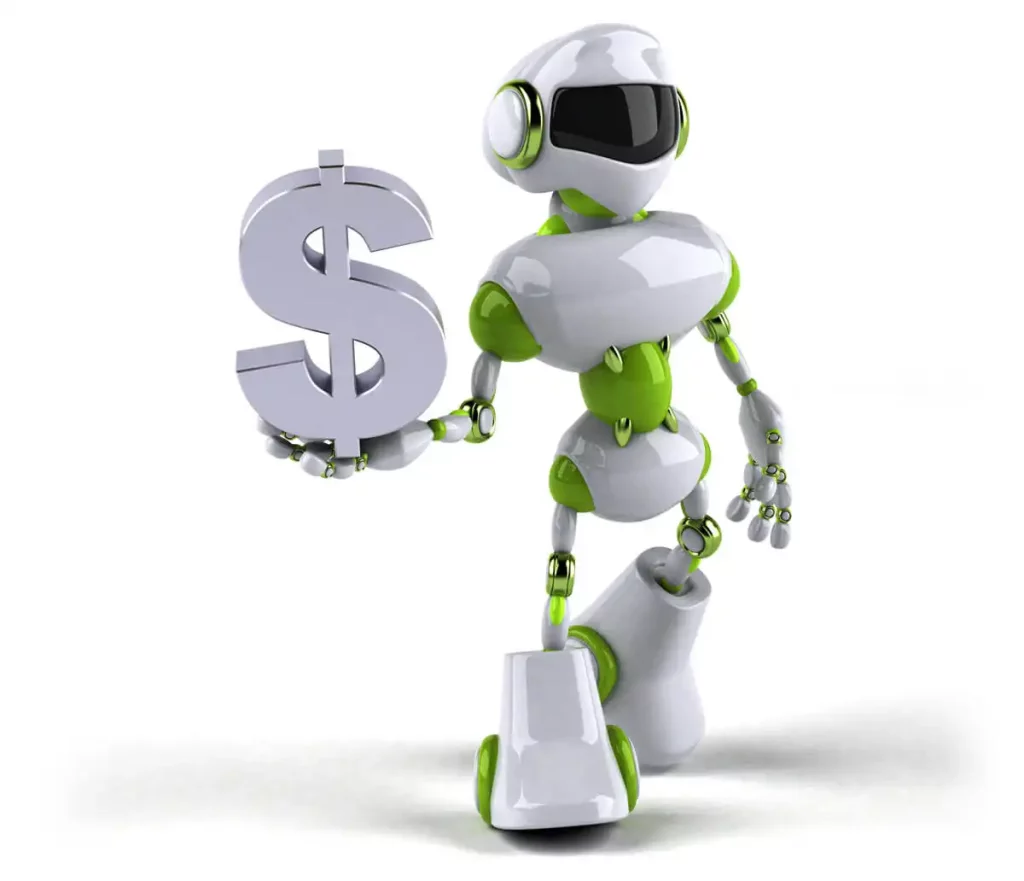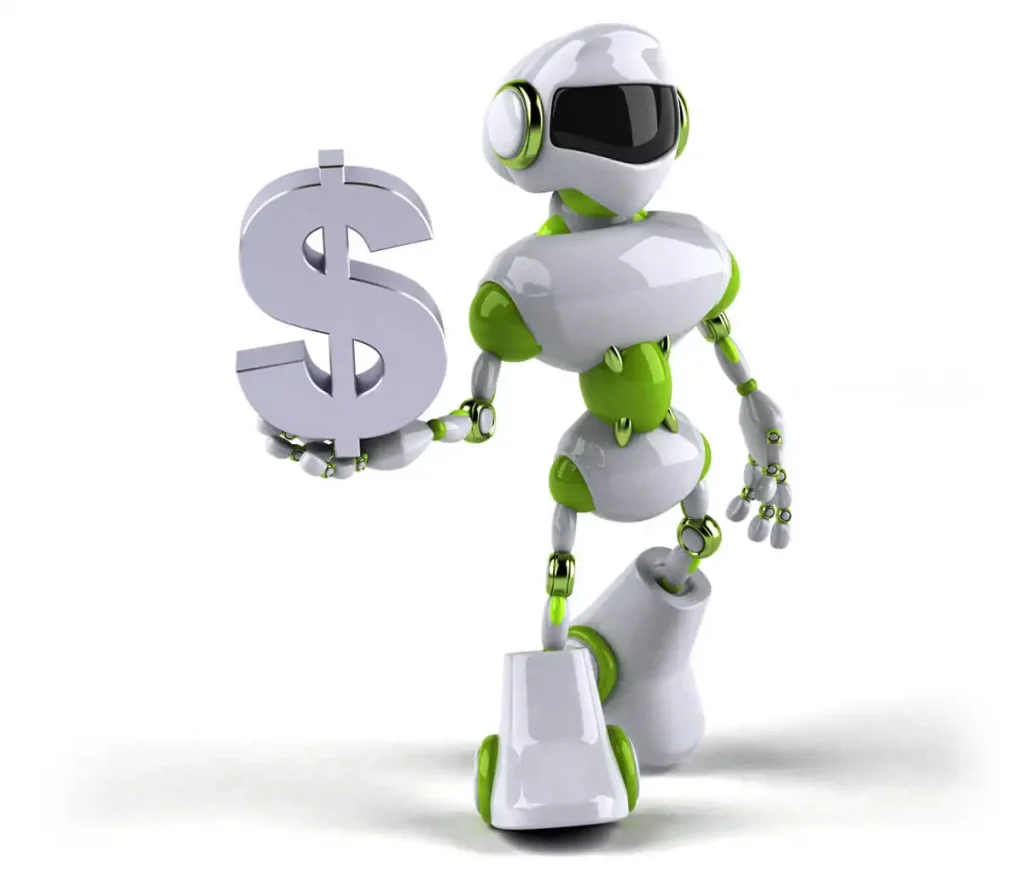Team Viz
Jun 29, 2021
5 min
If you go willrobotstakemyjob.com they can tell you by percentage what the odds of a robot taking your job are…
Depends who’s asking, or more importantly, who’s answering
If you go to willrobotstakemyjob.com they can tell you by percentage what the odds are of a robot taking your job. According to them, if you’re a singer, the odds are there’s a 7% chance that a robot could replace you. If you’re an accountant or auditor, you might be in trouble with a 94% chance working against you. It’s happening already with certain genres of music. NVIDIA produced a video recently for their yearly conference keynote presentation with the music intro score composed, arranged, produced and performed by AI. To be fair, the music was pretty incredible, but deep down inside something was missing. The piece was certainly moving, but usually one is moved by the emotion in the music that’s coming through the writer and performers; What were they thinking when they wrote that particular arrangement, who were they thinking about, what were they going through in their lives? I’m pretty sure once the AI algorithm finished the piece it didn’t sit around with other algorithms high fiving each other over a beer. I also wonder if AI bots are the ones actually running willrobotstakemyjob.com.
New industries, new opportunities, new office buildings?
We’ve learned through the pandemic that we don’t need buildings to house employees in certain industries to ensure productivity. With companies not spending small fortunes on office spaces they can invest that money in their employees, expand the workforce, and offer more competitive salaries. The focus will shift to using individuals’ intellectual capabilities.
Consider the amount of deliveries that are being sent to people’s houses as a direct result of the pandemic. New jobs are being created that never existed before. You can go to any large superstore chain and half the people shopping on any given day are shopping for someone else, someone who doesn’t want to, or can’t leave their house. That demand in turn created a need for new rental storage spaces, individuals to process orders, tech staff to run the back end of the platforms, wholesale delivery drivers, new factory workers, management and customer service departments.
COVID-19 itself has directly created jobs related to testing for the virus and delivering vaccines. Amazon added 400,000 jobs in 2020 to handle the surge in online shopping alone.
Where jobs are lost, others will need to take their place to run the infrastructure that’s being built up to make way for the use of AI. In sectors where some may lose their employment due to AI and machinery, there’s whole new industries being created around us. For all the jobs that may potentially be eliminated by AI, inevitably, a whole new sector will rise up. People have to know how to use the information you’re giving them, and with the adoption of AI we need people to manage the implementation and then support users of that Artificial Intelligence. Human beings help launch, optimize, support and interpret that AI.
For employees caught in the middle, companies will adapt; leveraging their skill sets, finding ways to reposition them to become liaisons to the technology. Having said that, millions of jobs were still lost while the pandemic was at its worst. The question of jobs and how they’re going to change is still unsure
Forbes Magazine weighs in
When Forbes releases their yearly lists of top performing companies, most influential performers, top 40 under 40 entrepreneurs, etc., people tend to pay attention. They haven’t compiled a Top 50 AI Robot list yet, but they’ve come close with AI algorithms. Their annual list of America’s top 50 most promising AI companies comes after a year of massive adoption of AI across all sectors, with a lot of ideas and AI innovation fueled by the worldwide spread of COVID-19.
The drive to replace humans with AI and machinery drastically accelerated during the pandemic and shows no sign of slowing down.
The companies in this year’s Forbes AI 50 list are full of ideas about what’s going to happen to humans, not robots. A San Francisco-based robotics company called Canvas builds AI robots that work in unison with humans to speed up the process of drywall finishing. Canvas CEO Kevin Albert believes that more can be done, regardless of the circumstances of the industry, pointing again to employers’ responsibility to rise to the occasion and train their employees about how the world is changing.
“Too often, I think the national conversation misses the risk that we as a society aren’t doing enough to train people for the jobs that are being created to meet the labor demand. The gap here is that we have to train people for the new jobs we are creating.”
What do the top 50 AI company founders & CEOs’ think?
Forbes spoke with a few other select CEOs and founders from the top 50 AI list to get their thoughts about AI, and what it means for human jobs during and after the pandemic.
“Our society is understandably wary of AI, especially in an uncertain pandemic economy with record-breaking unemployment” says Wendy Gonzalez, the CEO of Los Gatos, California-based digital training platform Sama.
“It starts with corporate accountability and responsibility. Companies that invest heavily in machine learning and AI need to be intentional about how they leverage this tool to enhance the lives of their customers, employees, communities, and society at large.” – Jason Lopatecki, the CEO of Arize AI, an analytics platform that oversees deployed AI in real-time.
“In the long run automation will create more jobs, not fewer. But in the short run, our biggest bet to prevent the effects of automation on the unemployed and the economy is to create upskilling programs” says Emi Gal, CEO for Ezra, whose AI helps radiologists more effectively detect cancer lesions.
As far as enhancing the lives of employees goes, it seems for the most part that companies are enthusiastic about helping employees learn new skills so that they can work with, or outpace, automation.
$34,000,000,000 in 7 years
The AI healthcare market is expected to grow from $2.1 billion in 2018 to $36.1 billion by 2025. With the United States being one of the leading countries in the world to adopt AI technology across the continuum of care, and that the high consumerization of personal care products like routine check-up medical tools and wearable devices further complementing the growth of AI in healthcare market, it’s not surprising that a lot of companies out there are using the words artificial intelligence in their descriptions of what they’re offering. There seems to be no escaping the term AI, no matter where you turn, and it sometimes appears there’s no general clear definition of the meaning yet as it relates to companies marketing the idea.
According to a report by Frost and Sullivan, thanks to the rise of AI technologies and more healthcare agencies embracing assistive robots, the personal robotic industry is expected to be an $18.85 billion market opportunity this year.
Are you really using AI?
With the speed at which AI technology is advancing, it’s quite easy to throw the term around and see where it’ll stick, and that may be part of the reason that the true meaning for some companies is so undefined. It may seem confusing and somewhat difficult to cut through the noise and hype at the moment, but once the dust settles and the companies with true AI technology remain at the forefront, people will have a much clearer understanding of what it is, and maybe more importantly at the moment, what it isn’t. AI isn’t new by any stretch of the imagination, but It’s progressing so quickly and efficiently lately that it’s really only starting to make an impact on everyday life. Even the FDA appears to be moving rather quickly in terms of recognizing companies with true life altering AI technology, probably due to the fact that they’re realizing the massive positive impact on healthcare these companies may have. Considering the amount of AI healthcare companies around today, most don’t have FDA clearance, so one would assume they’re really focusing on who’s out there and really seeing the important impact AI companies will have across the US healthcare system. They’re acutely aware of which companies are doing things properly and who’s potentially contributing to the sometimes-overlooked long term societal benefits, all of which will ultimately have an impact on the work they’re doing.
In the AI health industry, there’s been talk of Radiologists being replaced by AI, but that couldn’t be further from the truth. A computer only does what you program it to do, people still have to validate and respond to the information provided to them through AI. In the case of most AI healthcare technology, it actually gives time back to a physician. The AI is a shortcut that lets them fine tune their interpretation of the images, allowing them more time to focus on the relevant parts of the scans. This allows for efficiency, coupled with less chance of error.
The future of AI and your health
The future is definitely exciting when you think about what may be coming down the road, and how it will potentially change healthcare in ways we haven’t even imagined yet. AI will massively increase access to information so the right people can get the right information at the exact time it’s needed. For example, It will free up precious life saving time for medical professionals where it will perform tasks like triaging cases, giving physicians more time so they can make more informed time sensitive decisions, clearing the way for better use of resources and better use of someone’s skill and expertise, and ultimately better patient care. In stroke care for example, if you’re a patient and find yourself in a non-specialist stroke center, the time delays can be so significant that if you’re not diagnosed in time, you can simply miss your window of opportunity to get treated.
A great example of where AI is at the forefront of the medical field is with the introduction of AI into stroke care. With AI there are now far fewer steps and far smaller chances of error, so the right patient is reviewed by the right doctor at the right time, massively increasing the percentage of people who will now get the correct care they need, exactly when they need it. Computer aided triage such as this will make transformative change across the entire healthcare system. Right now, the word AI is being used so much in the wrong context that it may be slightly damaging as it could potentially mean that certain true technologies are being overlooked by the people who really should be using them, maybe resulting in situations where patients may not be getting the proper care they could be receiving otherwise. The near future will bring clarity to this issue, and people will quickly realize the incredibly positive impact that artificial intelligence will have, opening up unlimited potential by aiding and empowering people, and ultimately saving lives, which is what’s most important at the end of the day.



